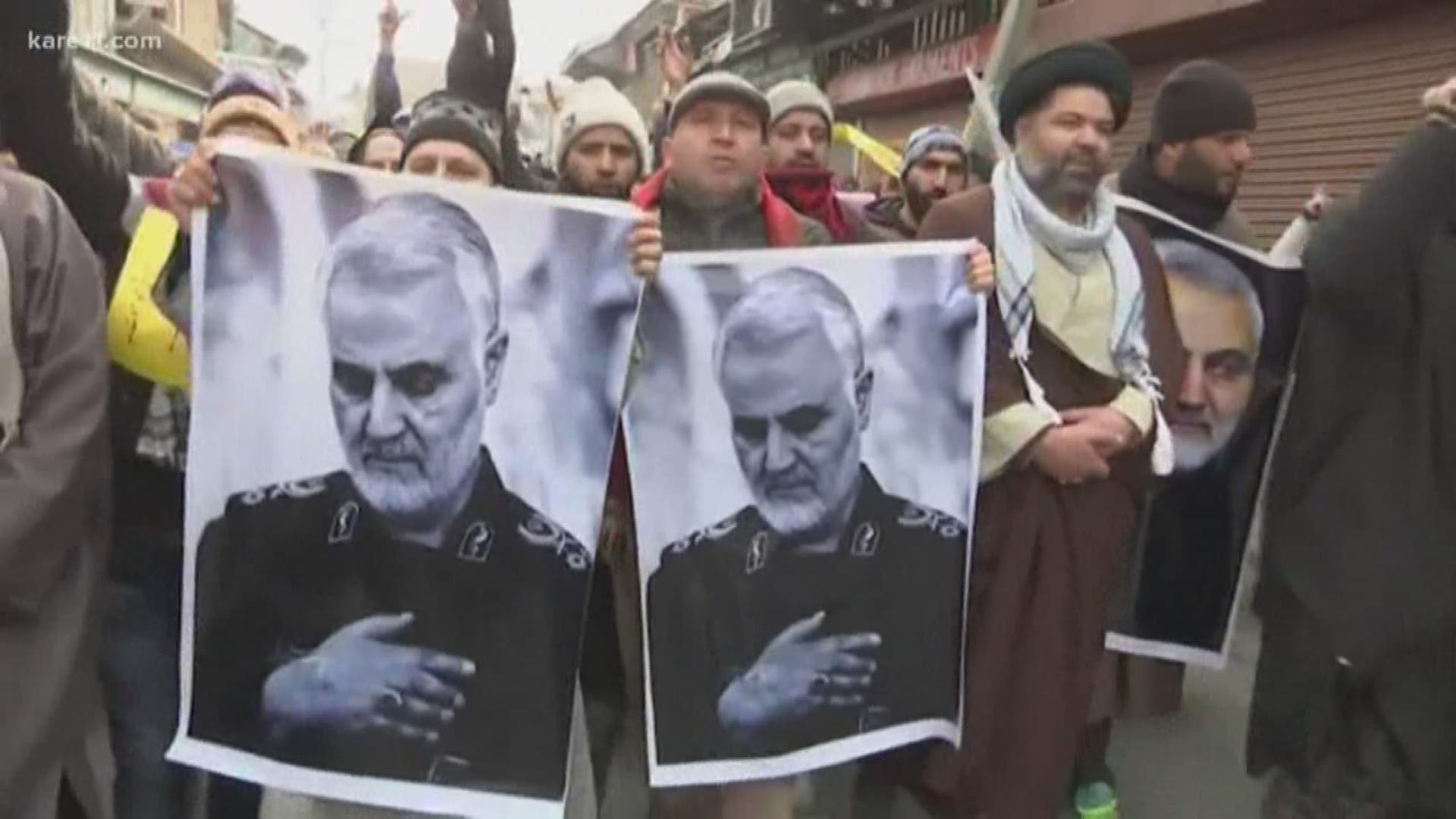As President Donald Trump continued to make threats against Iran, a Michigan congressman was beating a familiar drum: A declaration of war must go through Congress.
Sunday afternoon, Rep. Justin Amash (I-Grand Rapids) posted a 5-tweet thread in which he broke down the Constitutionally-mandated role Congress plays in declaring war.
“By giving Congress, not the president, the authority to declare war—to decide whether acts of war may be commenced against a foreign power—the Founders ensured that the American people would be involved in the debate,” he said.
Tensions with Iran have been running high since the Pentagon announced on Thursday the U.S. Military killed a powerful general, Qassem Soleimani, at the president’s direction. Following the airstrike, the Army deployed 3,000 more troops to the region.
While war has not been formally declared, Democrats criticized the president because he didn’t consult Congress. In his tweets, Amash’s point is straightforward: Congress represents the American people who deserve to have a voice regarding war.
“When a president engages in war without congressional authorization and Congress does nothing to stop him, the two branches cut the American people out of the process, in violation of our Constitution’s design,” Amash tweeted less than two hours before the president threatened Iran again.
This is a position Amash has emphasized repeatedly during his nine years in the House of Representatives. In 2013, during the Obama administration, he said the American people “must decide whether we go to war” through their representatives.
Throughout the Trump presidency, this a topic the congressman has brought up frequently (at least 20 times on Twitter), lambasting the president for campaigning on ending “endless wars” while increasing troops in the Middle East.
It is unlikely that the United States will formally go to war with Iran, even though the two nations have made military threats against the other. The last time Congress declared war was during World War II; since then resolutions have authorized the use of the military in conflicts around the world.
The power to declare war rests solely with Congress, and the president is given the responsibility to the direct armed forces. The War Powers Act solidifies the role of the legislature in military intervention by requiring the president to notify Congress after deploying troops and limiting the length of their engagement without congressional approval.
American troops have been deployed in the Middle East since 2001 under the Authorization for Use of Military Force, which has given presidents authority to use the U.S. military against those responsible for the Sept. 11 attacks and any “associated forces.”
Trump said he ordered the killing of Soleimani “to stop a war” and not start one. But the aftermath of the airstrikes has prompted fears of retaliation. Trump also said the general had been plotting “imminent and sinister” attacks.
While the increased military presence in the Middle East may be in a gray area in terms of a definitional, Congressionally-approved war, for Amash it’s pretty clear. “There’s a reason our Constitution grants Congress the power to declare war: Every American may be intimately affected by a violent conflict,” he said.
Other West Michigan representatives have responded to the airstrike, but they have not issued statements on increased military intervention. Republican Reps. Bill Huizenga, Fred Upton and John Moolenaar have all expressed their support for the killing of Soleimani.
RELATED VIDEO:
More on US-Iran relations from 13 ON YOUR SIDE:
►Make it easy to keep up to date with more stories like this. Download the 13 ON YOUR SIDE app now.
Have a news tip? Email news@13onyourside.com, visit our Facebook page or Twitter. Subscribe to our YouTube channel.




